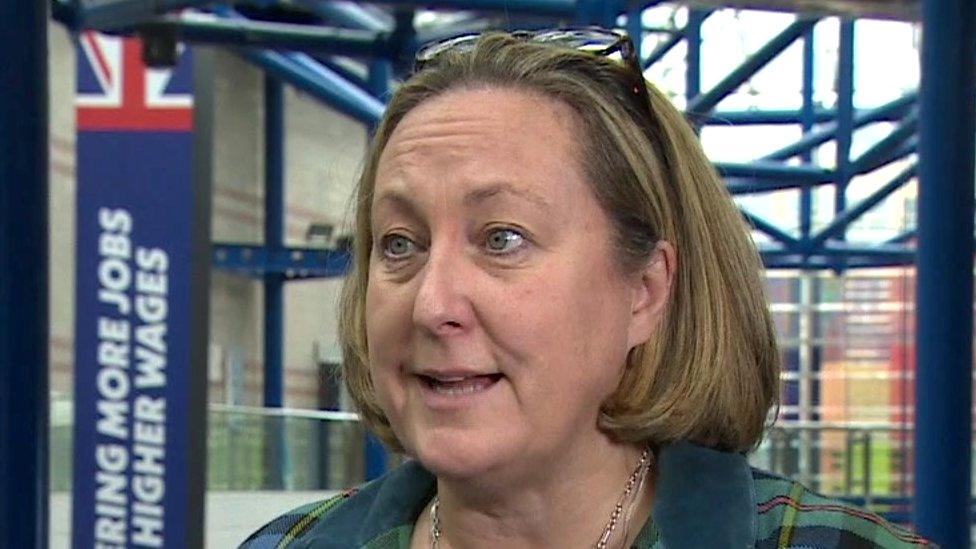Train firms must compromise over strikes, says transport secretary
- Published
- comments

The new transport secretary has said train companies must be prepared to make compromises to bring an end to the strikes that have crippled the network.
Anne-Marie Trevelyan told BBC News all sides had a "voice in this dispute".
"I want everyone to come round the table and find solutions and make compromises where we need to."
She met rail union bosses days after taking up her new job - something her predecessor Grant Shapps had declined to do.
Mick Lynch, head of the RMT union, said last week that his meeting with Ms Trevelyan had been a "good start" but "concrete change" was needed.
Asked if she felt more hopeful of a breakthrough after her meeting with the unions, Ms Trevelyan said: "I hope that we can find somewhere we can land."
She said it was ultimately up to the companies and the unions to settle their differences but as transport secretary she had an "important" role to play, adding: "I'm here to make sure our trains work."
But Mr Shapps dismissed her approach in an interview with the BBC's Newscast podcast on Monday, saying there was "no point" in talking to union leaders "unless there is a different package on the table and I have no evidence of that".
"You can have chateroo if you like," he added, but it "would not change the outcome".
He told Newscast he would be watching "very carefully" for any sign of "capitulation" to the unions, arguing that the offer made to them by employers was "pretty fair".
The unions are in dispute with the government and rail companies about pay, job cuts and changes to terms and conditions, saying salaries should increase to reflect the rising cost of living.
One of the employers involved in the dispute, Network Rail, says the offer it made in July is worth 8% over two years but depends on workers accepting its "modernisation plans".
The RMT says this is a "paltry sum" and represents a real terms pay cut.
The general secretary of train drivers' union Aslef, Mick Whelan, has said he is "truly committed" to trying to resolve the pay dispute with train companies through negotiations.
In an interview with the BBC, Mr Whelan said talks with the group which represents the operators were ongoing and more were scheduled, but the two sides were "currently not very close at all" to agreement.
Aslef's strikes on Wednesday will affect travel to and from the Conservative conference.
Mr Whelan said he believed the public were behind the strikes, but he didn't want to "be here in six months' time, in 12 months' time", and the only avenue was negotiations.
He added that Ms Trevelyan had been "very personable" in their recent meeting and "we're hoping that because she's listened, something might change".